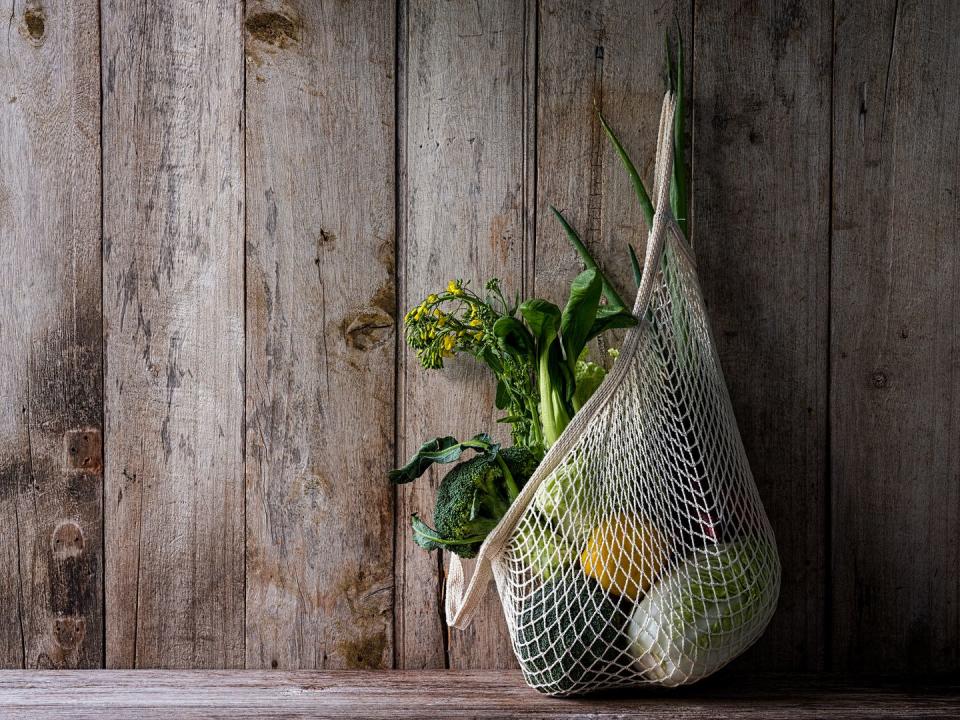How to throw a zero-waste dinner party

Throwing a sustainable, zero-waste dinner party can be hard, especially when you also want to do something special and memorable for your guests. But what will really impress your friends is creating as little waste as possible so you can all have a clearer conscience.
From napkins to empty bottles and food leftovers, we need to rethink the way we host. London-based chef George Rouse, owner of luxury catering company George’s Kitchen, works with a sustainability ethos that strives to be zero-waste. We asked George to share his tips...
1. Planning zero isn’t zero planning
"Every element of a zero-waste party needs to be effectively planned, right down to the last bit of seasoning. This means that a careful strategy and a lot of organisations is needed, which should always start with the menu. Consider which dishes you will be able to source the most sustainable ingredients for and how far you want to take the theme. For example, many people are choosing to go vegetarian as they believe meat is not sustainable for the environment. However, it’s best to do as much research as possible into what ingredients are considered the most environmentally-friendly," advises George.

Questions to ask:
what British food is in season?
what can you buy from your farmer's market for farm shop?
what can you buy as locally to you as possible which doesn't involve travel miles?
have any of your ingredients been imported and can they be swapped?
do you or one of your friends own an allotment you could source ingredients from?
2. It starts from the source
"I always find that seasonal dishes work best for zero-waste parties as they are always a fan favourite as well as being easily sourced locally. The source of the ingredients is vital as this is where the trail of waste starts.
"Some of my favourite places to source zero-waste ingredients are farmer’s markets and local butchers as you know the produce hasn’t travelled far. However, when shopping for any items found in a supermarket, avoid putting fresh fruit and veg in plastic bags, they will be washed before being used within the dish anyway," says George.
Things to remember when shopping:
take your own Tupperware for meat and shopping bags for veg and other bits
avoid anything in excess packaging

3. Portion control
"When planning your party, you also need to consider how much of each ingredient you will need. If you’re able to, buying in bulk also avoids the use of excess packaging, which will hopefully be recyclable at the end. However, you also need to find the balance of not buying too much of each ingredient and providing portion sizes that are the right size for your guests as this will result in less waste left on guests’ plates," George reminds us.
Questions to ask:
can your meal be frozen if you have leftovers?
can any food waste go on a compost?
4. Think about drinks too
"Although the food is, of course, the most important part of any dinner party, the beverages are also a key element for considering waste. Try sourcing beer and wine with re-usable bottles – for example many brewers or wine shops run bottle schemes where you can bring your bottles to be refilled rather than using new ones.
"It is also better to use wine bottles that aren’t corked as the tops are recyclable. You can even make additional swaps when it comes to hot drinks such as using loose tea leaves in a large tea pot instead of using lots of individual tea bags," advises George.
5. Single-use kitchenware
"Non-food based waste also needs to be considered in the kitchen during the cooking process. Single-use kitchenware such as aluminium foil will need to be considered and reduced where possible. If you have anything that needs to be covered or refrigerated, use a cloth instead of things like cling film and foil.
"Additionally, unless you throw dinner parties regularly, there may be a few kitchen items you don’t have if you’re not used to cooking for a large group of people. Many items are available to hire, or you could even ask to borrow some from friends, for example if you need an extra baking tray or two. Alternatively, hiring an outside catering company would eliminate the need for extra equipment as they will take care of this for you," says George.
6. Inform your guests before
"Guests often arrive at dinner parties with gestures for the host such as bottles of wine or additional treats to enjoy on the evening. However, whilst this can be thoughtful and appreciated, it may be adding to the overall waste of the evening. Prior to the event, it’s best to inform guests of the theme of the evening, which will add to the overall fun and enjoyment of the evening as they may get into the spirit of zero," advises George.
7. On the table
"Firstly, you may want to embellish the table with centre pieces and decorative napkins, but there is no reason why these can’t be sustainable options. Get your craft head on and see if you can create your own centre pieces from upcycled materials such as jars and washed-up pebbles" says George.
8. Clearing up
"After your evening of successful hosting is over, this will be the time where you see how successful your attempts at zero-waste have been. If there are any left overs, encourage your guests to take them home to enjoy the dish tomorrow. There are also different ways to get rid of leftovers, for example, at George’s Kitchen we donate all our excess produce to a local charity that cares for the homeless. Have a look to see if there are any similar services in your area who may appreciate them. Any other scraps and materials should be composted or recycled," George concludes.
('You Might Also Like',)


